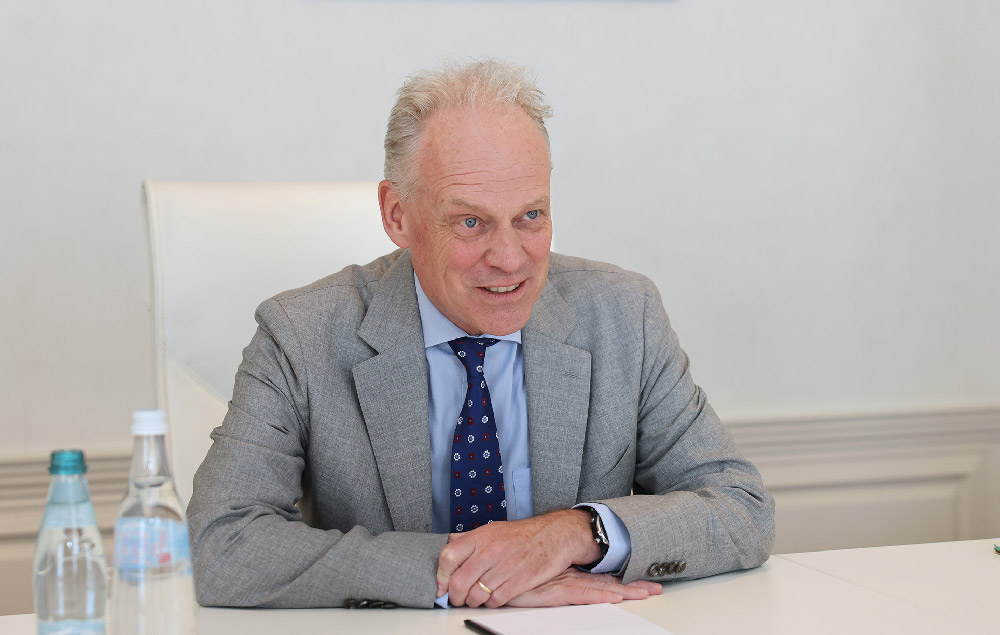EC Director General: Very tense climate in Tbilisi; I call on everyone to take temperature down
Gert Jan Koopman, Director General for Neighborhood and Enlargement Negotiations of the European Commission, says Georgia’s draft law on ‘transparency of foreign influence’ “is problematic on the accession path.”
“We have spent two days talking to the government, the president, and the prime minister. We have also spoken obviously to the opposition, the CSOs. And, I must say that the situation I found when I arrived is extremely worrisome. There’s violence in the streets of Tbilisi. We, of course, condemned the violence in the streets of Tbilisi. Our president has been very clear. There are concerning developments in terms of legislation. The law that is passed on transparency in the second reading as it stands is unacceptable and will create very serious obstacles for the EU accession path,” Koopman noted.
EC Director General says “At the same time, progress on the nine steps so far is limited. And that is also not a good thing.”
“However, there is still time. We will draw up our recommendations in September, and publish a report in October-November. So, there is still time, but the ball is very firmly in the court of the government. My door is always open. The commission is here to work with candidate countries. I detected some openness to pursue this. I know that the Georgian people want to move closer to the EU and I trust that their government will also want that, I also sense that. So, I hope that on that basis, the very difficult situation we find today can be addressed. And, I certainly hope that, but ultimately, it is now for the Georgian government to step forward.
I was very clear that this law is problematic on the accession path. As I understand it, it has been adopted in the second reading. There is still a third reading that needs to take place and there are still presidential vetoes that can follow. I think this time, that is still ahead of us, needs to be used to debate the substance of the law. It clearly is not acceptable for us as it stands. It’s not compatible with European values. But transparency as such, as a value, is a good thing of course. We ourselves in Europe preach transparency. So, I hope that this law will not be adopted as it stands and that it can still evolve,” he stated.
Koopman notes that “seeing so many people in the streets is a clear sign of stress in society. Violence is always a bad thing.”
“So, we’re concerned about that. I think generally there’s a very tense climate in Tbilisi, there’s escalation and polarization and I call on everyone to take the temperature down. This is very unhealthy.
“The EU has proposed a directive on EU law on transparency in democracy, which is a very different type of law. But as I said, we stand with democracy and transparency. The law is not meant to identify specific actors in society to target them and it certainly doesn’t designate them when they receive funding from foreign sources as working in the interest of foreign sources. So, it’s a different setup altogether,” he added

